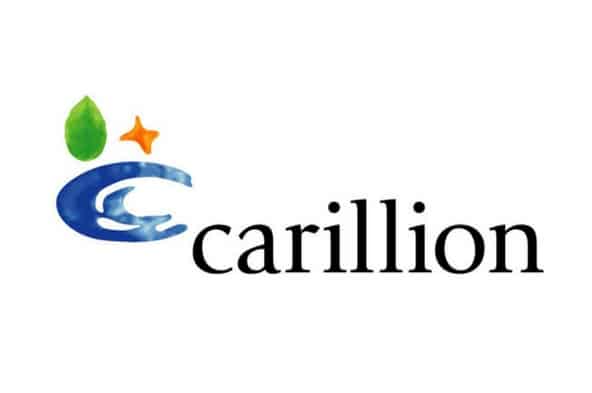The UK’s business landscape is constantly changing, with companies closing and new ones being launched all the time. In 2018-19, the official Companies House register showed that more than half-a-million businesses were dissolved – some for happy reasons, some less so.
If you’re a company director interested in closing a limited company, there are certain procedures that you must follow. So what do you need to know? And how does the process differ for solvent and insolvent companies?
Read on for our brief guide to the four main ways that limited companies can close: Voluntary Dissolution, Members’ Voluntary Liquidation, Creditors’ Voluntary Liquidation, and Compulsory Liquidation.
Remember: insolvency practitioners such as Insolvency Support can guide you through the process and keep you on the right side of the law.
Why close your limited company?
Obviously, most businesses will continue while they remain afloat. So why might you choose to close your company down?
For microbusinesses, perhaps you want to retire and there is nobody to take your place as company director. It could also be that you are choosing to return to employment: maybe your business has not proved to be as profitable as you’d hoped, or you’re finding the role too stressful.
In some cases, the company has outlived its purpose: perhaps it was a business idea that turned out not to be feasible, or a subsidiary whose name is no longer required.
Sadly, it might also be that your business has become insolvent and is facing pressure from creditors, making liquidation the best option.
Whichever situation applies to your company, insolvency practitioners can advise.
Wrapping up your business
Closing a limited company smoothly entails tying up all loose ends. Failure to do so could land you, the company director, with unexpected bills or regulatory issues further down the line.
You’ll need to inform all key parties that you’re closing, such as creditors. You must also settle your bills, inform HMRC, and de-register for VAT.
If you have staff, you’ll need to go through the correct procedures to terminate their employment.
Got any assets? You’ll have to sell them, too. Once your company officially ceases to exist, any assets you’ve forgotten about will pass to the Crown, and you’d have to restore your business to reclaim them.
Finally, don’t fall into the trap of thinking you can simply shred all your paperwork: you need to keep your records for several years.
Confused? It’s a complex process, so it’s best to appoint an insolvency practitioner who can guide you through the process.
Solvent companies: Voluntary Dissolution
Is your company solvent – can it pay its bills and debts, and are its assets greater than its liabilities?
If so, there are two main options for closing a limited company, so it’s best to get professional advice. This could save you not only time and hassle, but also money in taxes.
The simplest way is by applying to Companies House for voluntary dissolution.
You’ll need to tie up loose ends, close your payroll, and cease trading for three months. Then you simply pay a small fee to Companies House to be removed from the register.
If your assets are less than £25,000, this could be the most cost-effective method.
Dissolution is usually voluntary, but Companies House can strike off dormant businesses.
Solvent companies: Members’ Voluntary Liquidation (MVL)
You should also consider Members’ Voluntary Liquidation (MVL): a tax-efficient method that is quite different from liquidation for insolvent companies.
An MVL begins with company directors swearing a statutory declaration that the company is solvent. They then call a meeting of shareholders to ask them to pass a resolution to appoint an insolvency practitioner as liquidator.
The liquidator takes control of the company and handles the liquidation process: settling claims, selling assets, and distributing any funds to shareholders. Finally, it applies to Companies House for dissolution.
There are various fees or disbursements to pay, but closing a limited company in this manner allows you to pay capital gains tax rather than income tax on any profits. You may also be eligible for Business Asset Disposal Relief (formerly known as Entrepreneurs’ Relief), further reducing your tax bill.
It’s usually best suited for companies with profits of more than £25,000.
Insolvent companies: Creditors’ Voluntary Liquidation (CVL)
If you cannot pay your debts, or your liabilities are greater than your assets, you need to take action as soon as possible.
For a CVL, you should call a meeting for a vote on a ‘winding-up proposal’. You’ll need the agreement of 75% of shareholders by share value.
Once that resolution has passed, you must appoint an insolvency practitioner to take control of your company and the liquidation procedure. That will include selling company assets and settling debts.
You’ll need to inform Companies House of your resolution, and advertise it in The Gazette.
A CVL might be your best option for closing a limited company if you’re facing pressure from your creditors, such as a winding-up petition or statutory demand. It may protect you, the company director, from charges of wrongful or fraudulent trading.
Insolvent companies: Compulsory Liquidation
This final method is one you want to avoid. If the courts uphold a winding-up petition and issue you with a winding-up order, your company will be forced into liquidation. An insolvency practitioner will be appointed to sell off your assets, pay your creditors, and strike off your company from the register.
You and your fellow company directors could face charges of wrongful or fraudulent trading, which carry penalties including fines, disqualification from acting as a company director, or even imprisonment in the case of fraud.
So it’s always wise to react fast if your business is slipping into the red, and seek guidance from expert insolvency practitioners. Even if you end up having to close your company, you want to do it as smoothly as possible.
Talk to Insolvency Support today
If you want to close a limited company, or are under pressure from creditors, you should seek expert advice.
Insolvency Support can guide your company through the closure process, ensuring it’s as cost-effective as possible and keeping you legal and compliant.
Contact us today to discuss your business needs.


